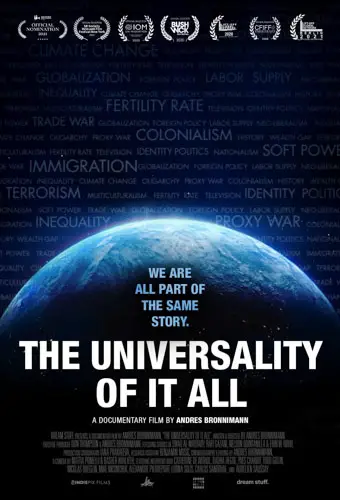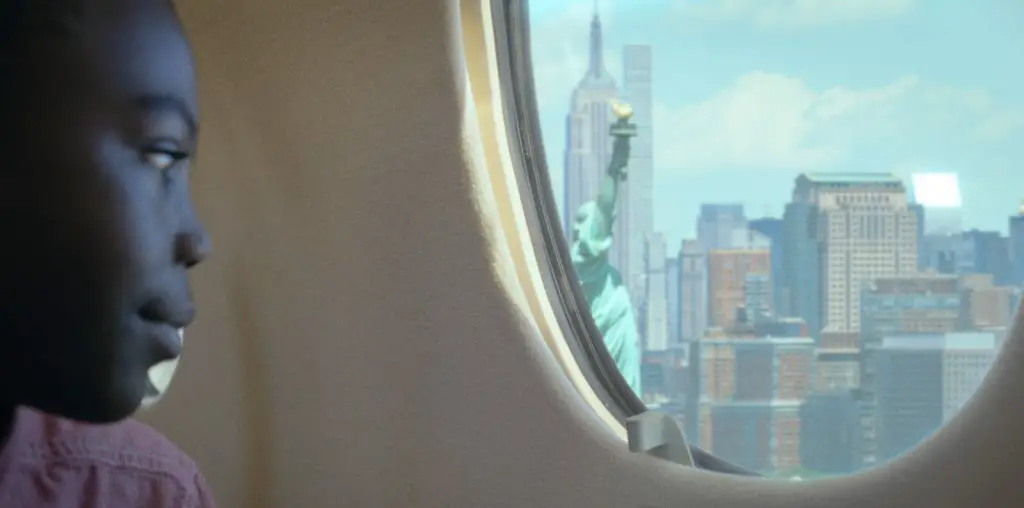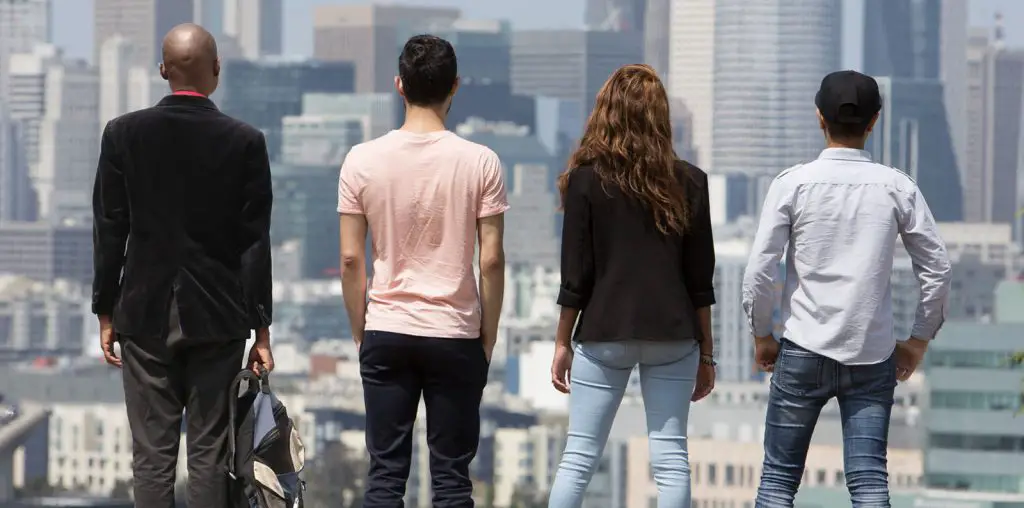
The Universality of It All uses current and past events to make the case that human migration is a natural occurrence. The artificial geopolitical boundaries of societies have created an undue burden on the shifting populations moving away from stressors and toward better lives in other places. Costa Rican filmmaker Andrés Bronnimann tells the story of his best friend Emad, a Yemeni refugee living in Vancouver, Canada. He begins by focusing on Emad’s travels and the difficulties of finding a place that will accept him.
What starts as the story of one displaced person becomes a study of the reasons people do, and always have, moved around the world. Bronnimann zooms in on Emad but uses that experience to extrapolate from a broad perspective the interconnectedness of all the significant events of the 21st century. The film analyzes several migration cases from an economic and historical perspective, showing how causes and effects tie the events and people together. Then, from the facts-on-the-ground to a birds-eye overall perspective, the filmmaker moves from the intimate to the global, touching on events in Yemin, Costa Rica, Nicaragua, North Africa, and France. From war in Syria to the Brexit referendum and the 2016 US Election, this film goes around the world at a dizzying pace.
The Universality of it All explores the global effect as chain reactions of events cascade and snowball into global proportions as masses of people move in response. The film also touches on the potential coming impacts of climate change on human migration patterns. The sentiment shared is that modifications to habitable zones could spark migration on the largest scale the world has seen since the dawn of civilization.
“…explores the global effect as chain reactions of events snowball into global proportions, and masses of people move in response…”
Information and coverage of world events come at an overwhelming speed and density. Blink, and you’ll miss something. Infographics, video, and audio roll over the viewer like a tsunami, juxtaposed with the impressions shared about Emad’s personal experiences. The impact of political and natural catastrophes will leave you shaken but enlightened.
The difficult part of this is that there are no real answers… historians could trace the origins of the suffering caused by human displacement. Still, the concepts of fixed agriculture giving rise to politically controlled geographies are burned into the foundations of modern civilizations. It’s hard to see how the world’s system as it is now could continue if borders were eliminated. The challenge will be to find a more compassionate approach to immigration that doesn’t require the complete destruction of existing global social and political structures.
Emad’s story evokes sympathy for all those displaced and feeling unwanted. We’ve also seen this recently with refugees who fled Afghanistan in the wake of the new wave of control by the Taliban. The Universality of it All argues that humanity must learn to do better.

"…evokes sympathy for all those displaced and feeling unwanted."



[…] post The Universality of it All first appeared on Film […]